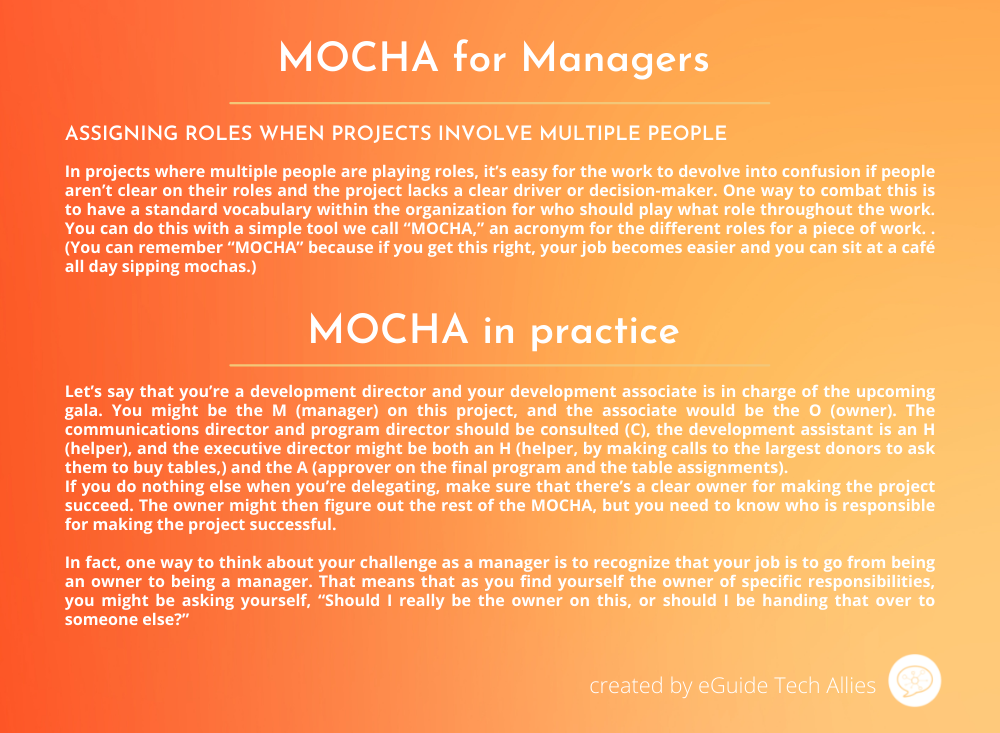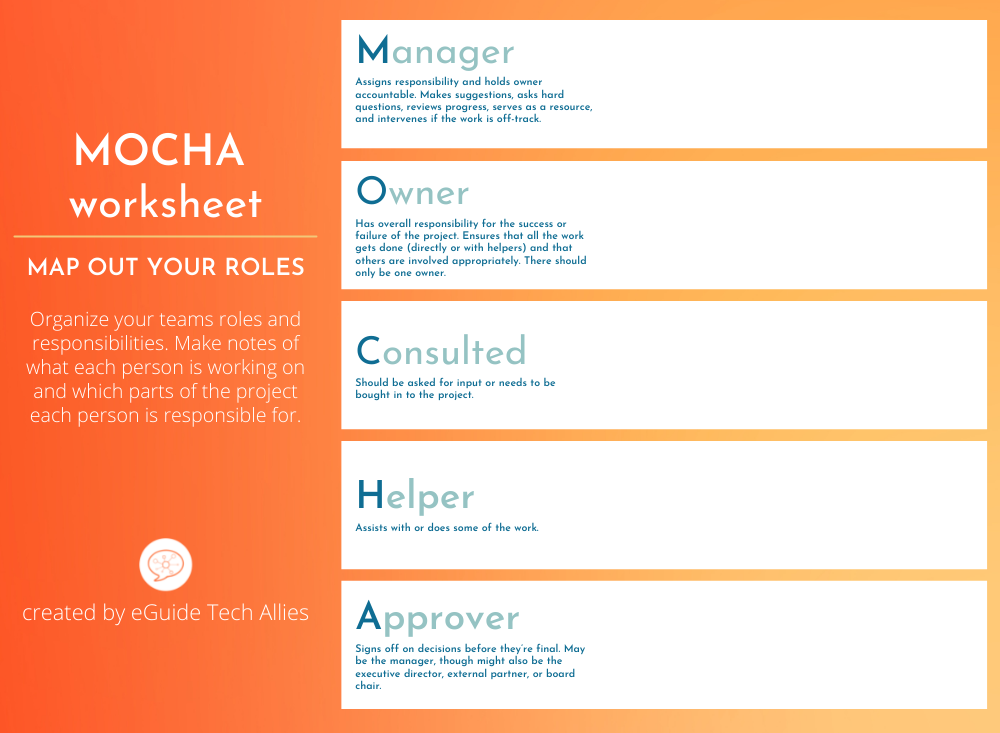Effectively Managing Projects for a Growing Organization
Working “On” Your Business vs. “For” Your Business
Does this scenario sound familiar? At the start of the year, you spend some extra time identifying projects that you know will help the business grow. For two months you dedicate yourself to making sure that tasks are completed that move those projects forward. Then, in March you land a new piece of business, or program planning starts, and all of a sudden those growth projects take a back seat to tasks that must be completed. One month turns to three and by the time you get back around to those growth projects, you feel so discouraged and behind that you let the project take a back seat until the following year.
As a small business owner or an executive director for an emerging nonprofit organization, each day is filled with delicately balancing working on projects that will help your organization grow (working on the business), and working on the projects that need to happen for the operation to stay in motion (working for the business).
If your organization is anything like ours, you may be feeling the exciting and terrifying growth potential and surmounting projects starting to pile up as the world re-awakens from COVID-19. We are happy to share some insights and tips that will help reignite your flame and encourage you to pick up where you once left off.
What is a Project, Stakeholder Register, and Change Log?
Projects are not Operations
It may come as a surprise but many small organizations confuse projects with operations. For something to be considered a project it must have a start and end date and include defined deliverables. Think about what you are currently considering a project. Are you approaching your marketing efforts, team development efforts, or accounting work as projects? If any of those “projects” have ongoing deliverables, chances are it falls more into operations and should be approached with a defined process and standard operating procedures (SOPs).
Using the distinction between projects and operations allows you to see a project through to completion with a defined end date. This will give both yourself and your team a light at the end of the tunnel and will raise the chances of that project is completed.
Stakeholders Align Communications
Where's the beef? No, not a “steak holder”, a stakeholder. Knowing who is working on a project from both the client and organizational side is the first step in establishing proper communication channels. We recommend including a stakeholder register as part of each of your project workbooks or project plan. An effective stakeholder register should answer the following questions: Who is working on the project? What is their role? How do you reach them? And what is their preferred communication channel? This simple step will decrease the time it takes to onboard new people into a project, and further define roles and responsibilities for better communication.
Changes Happen Often for Small Organizations
Have you ever been working on a project and find yourself waving at deadlines as they pass you by? Especially for smaller organizations, changes during a project are a common occurrence, but staying up to date on those changes and identifying patterns of those changes will allow you to more realistically identify due dates. Try noting the reason you missed a deliverable for a project. Keep a running log and review it after the project is complete. We can guarantee you will walk away with insights you didn't have before and will be better equipped to keep projects on track in the future.
Delegating with Purpose: The MOCHA Method
Delegation is an important (and difficult) task for any small business owner or executive director. It’s true, no one on your team knows as much about the inner workings and goals of the business better than you, but that shouldn’t stop you from lightening your workload with proper communication and planning.
The Management Center, a professional development company located in Washington DC, has created The MOCHA method which can be a tool that will allow you to easily identify who is responsible for what in each project. MOCHA stands for “Manager, Owner, Consulted, Helper, and Approver” and includes the roles below:
MANAGER | Assigns responsibility and holds the owner accountable. Makes suggestions, asks hard questions, reviews progress, serves as a resource, and intervenes if the work is off-track.
OWNER | Has overall responsibility for the success or failure of the project. Ensures that all the work gets done (directly or with helpers) and that others are involved appropriately. There should only be one owner.
CONSULTED | Should be asked for input or needs to be brought into the project.
HELPER | Assists with or does some of the work.
APPROVER | Signs off on decisions before they’re final. May be the manager, though might also be the executive director, external partner, or board chair.
Even if you are an organization of 3 employees using this method will allow you to clearly illustrate driving and supporting roles for each project and sub task associated with a project.
Tools To Help Your Team
Especially for smaller organizations, an effective project management software has to be easy to use, adaptable, and cost-effective. We've helped our partners use a variety of platforms to manage projects and have had the most success with Trello, Asana, and Monday.com. Keep an eye out for another blog this month sharing additional insights!
Slow Progress is Better Than No Progress at All
While it’s almost inevitable that there are going to be projects that miss their deadlines, and you may fall off of the proverbial bandwagon when it comes to working on your organization from time to time, instilling some structure and intention into how you are approaching projects is a great way to give them a fighting chance for completion. Ultimately slow progress and remaining steadfast in your belief that the project will get complete will ensure that you are reaching the goals you are putting forth for your growth and development.
Hopefully, this has been a reminder to not give up and revisit those projects that may have sat untouched for a few months. Don’t give up, your efforts will pay off.


